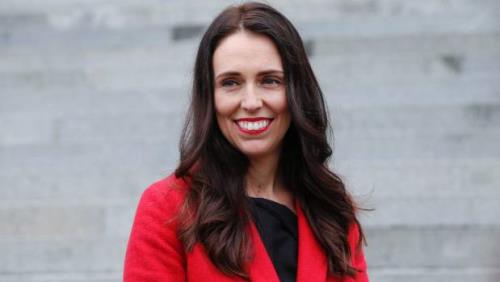Mum’s the word on baby plans
9 August 2017

The election of 37-year-old Jacinda Ardern to the leadership of the Labour Party has captured the headlines across New Zealand.
Mark Richardson, on the AM Show, asked her about her plans to have children, arguing that an employer had the right to know this information from potential female employees.
Accordingly, voters should have the right to know about her plans to have children when preparing to cast their vote in the upcoming general election.
Ardern accepted that it was okay that she was asked that question as a political leader because she had been honest about the issue and opened herself up to the discussion.
But she fiercely said it was totally unacceptable in 2017 to ask other women whether or not they intended to have children and it should not predetermine whether or not they were given a job.
It has become apparent that opinions within New Zealand are sharply divided on the issue. Some believe that the employer ought to know whether a woman plans to have children because it will have an impact on their business.
Many believe that it is unlikely a man would be asked such a question because primary responsibility for childcare is less often assumed by the male.
But is it prejudice that leads to this thought? Should this question influence the job prospects of a woman?
Many readers will know that the Human Rights Act prevents discrimination on the grounds of sex, which includes pregnancy and childbirth, and also on the grounds of family status.
Asking whether a woman plans to have children when deciding whether or not to employ her would be discriminatory. It may be defensible if the context makes clear that there is no intention to discriminate.
The complexity of this issue is illustrated through the Australian case of Mrs Bridges, who had a job interview at Ballarat University outside of Melbourne.
During the interview she was asked a series of questions about her children and her family, to the extent that she became unsettled and confused and could not perform well at the interview.
The employment tribunal held that it was discrimination. However, the Victorian Supreme Court overturned the decision holding that it was her interview performance, not the discriminatory question, that led to her not being selected for the job, and that this was not discriminatory, as the causation was too distant.
However, the decision is based on Australian legislation and would only be persuasive in New Zealand.
There are exceptions in the Human Rights Act. If the employer has a genuine need for a specific quality or trait to adequately fulfil the role they are advertising, they may ask questions around that.
For instance, it might be possible for the Labour Party or National Party to refuse to employ an applicant if they belong to say, the Green Party, even though this would otherwise be unlawful discrimination on the basis of political opinion.
Similarly, if a person applies for a job with a religious organisation, such as a church, questions relating to their religious beliefs could then be asked.
Discrimination on the basis of sex is allowed for a religious organisation where roles are limited to one sex to comply with doctrines, rules, or customs of that religion.
Another exception applies in the case of applicants for domestic employment in a private house, such as a nanny. In these cases the Human Rights Act allows discrimination on the basis of sex, religious or ethical belief, disability, age, political opinion or sexual orientation.
In situations not covered by an exception under the Human Rights Act, questions such as "what is your religion" or "what is your sexual orientation" would seem very odd to ask if the information was not going to be used to discriminate.
Outside of the exceptions set out in the Act, discrimination on prohibited grounds will get you into trouble.
An employer who asks a job candidate whether they plan to have children wanders into the territory of potential discrimination and risks the matter being taken up with the Human Rights Commission.
Furthermore, it seems offensive for applicants to be asked questions about their personal lives when they have nothing to do with how well they will perform the role.


